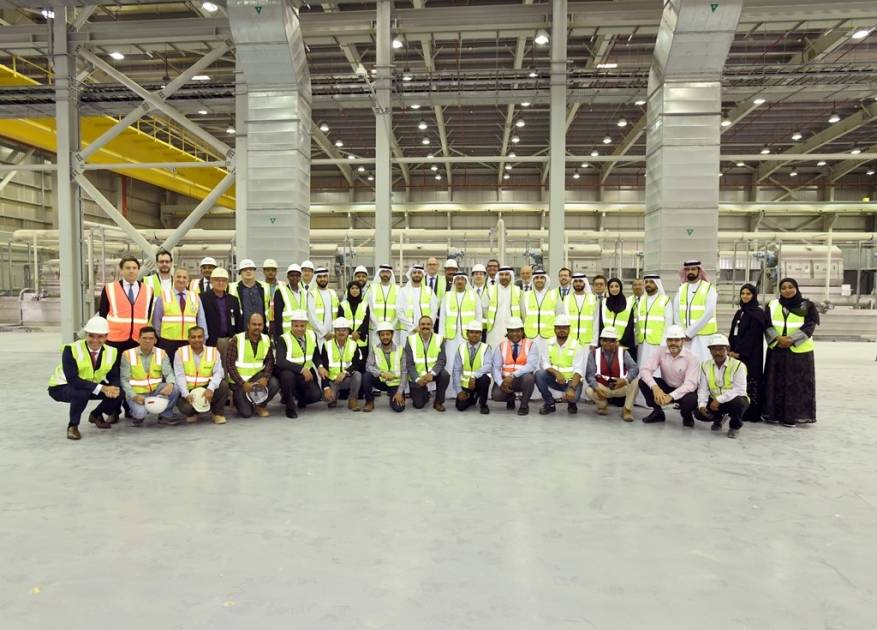
Dubai Municipality completes second phase of Jebel Ali Sewage Treatment Plant
Dubai Municipality has completed the second phase of the expansion of Jebel Ali Sewage Treatment Plant at a cost of AED 1.3 billion and a capacity of 375,000 cubic meters of water for this stage thus taking the combined capacity of Warsan and Jebel Ali plants to about 1 million cubic meterswith the possibility of future expansion of three more stages.
Dawoud Al Hajri, Director General of Dubai Municipality said that the current expansion of Jebel Ali plant is one of the important infrastructure projects for the coming years to keep pace with Dubai's comprehensive growth in all areas to cover 100% areas of Dubai. “This expansion will cover the Expo and other areas of development and can accommodate the continued and future population growth with high efficiency. It will also support the strategy of the provision and preparedness of infrastructure. The combined capacity of our plants in Warsan and Jebel Ali has reached one million cubic meters of wastewater per day. We have also reduced the cost of treating this cubic meter of wastewater to make this the world's lowest expansion,” he said.
This expansion is characterized with a 25% reduction in energy consumption and produces about 232 billion cubic meters of irrigation water that is compliant with international standards and supports our plan to plant trees in the city in a big way as this water would be enough to irrigate 6,250 hectares of cultivated land.
Al Hajri added: "What is unique about this project is the participation of a young UAE cadre of 13 engineers, including three females.”
Eng. Fahad Al Awadhi, Director of Drainage and Irrigation Department and Project Manager pointed out that the first part of the project deals with water treatment and the second with the treatment of solid materials. “The civil works included drilling, pouring concrete and insulation, providing structural plans and delivery of materials, along with electromechanical works and installation of equipment,” he said
Al Awadhi said the project will absorb the excess flow from the areas of Expo and other areas and will cover the existing urban projects and future projects in the Emirate, and will convert the proportion of the load from Warsan to Jebel Ali station.
The project was completed taking 10 million working hours and using 143,000 cubic meters of reinforced concrete, 24,000 tons of reinforced steel, 2,659 mechanical and engineering equipment and machineries, 700 km of cables and 30 km of pipes. The project handles 21,900 tons of solid wastes rich in nutrients that make them suitable fertilizers with high international standards and can be used as biofuels.



























